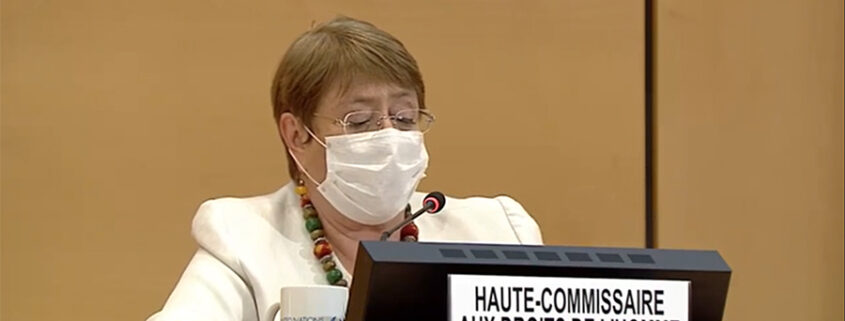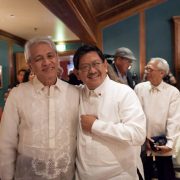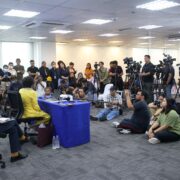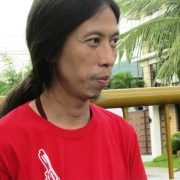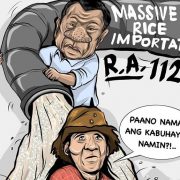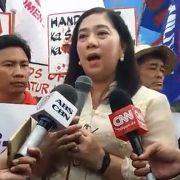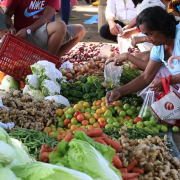Int’l community urged to press investigations on PH rights violations
The 52 drug war cases investigated by the Department of Justice only comprise .9% of the 5,655 cases of drug-related killings it admitted before the United Nations Human Rights Council in 2020.
There is no effective domestic mechanism to deliver justice and accountability for human rights violations in the Philippines, making investigations by the international community necessary and urgent, rights alliance Karapatan said.
Despite repeated promises of cooperation made by Philippine government officials to the United Nations Human Rights Commission (UNHRC), Karapatan secretary general Cristina Palabay said the country’s domestic mechanisms remain ineffective and inadequate in delivering justice.
Palabay said that both the government’s Inter-Agency Task Force on Administrative Order No. 35 (AO 35) and the inter-agency panel on the drug war have yet to show any significant progress in holding the perpetrators of human rights violations accountable.
Palabay called on the UNHRC to press on with its plan to conduct investigations on the state of human rights in the Philippines to coincide with the International Criminal Court’s own investigations on the thousands of deaths resulting from President Rodrigo Duterte’s war on drugs campaign.
Slow pace of investigations
From the creation of the AO 35 task force in 2012 up to December 2019, the group has handled only 385 cases, including cases that date all the way back to 2001 under the term of Gloria Macapagal-Arroyo, Palabay revealed.
Citing government’s own reports, Palabay further revealed there were only 13 convictions while 127, or 33% of the cases, were dismissed and the perpetrators were either cleared or acquitted by the courts.
She also noted the slow progress of majority of the investigations and prosecution, with 111 cases archived while 89 are still under investigation.
Recent cases added to the list include the brutal killings of National Democratic Front of the Philippines peace consultant Randall Echanis, Karapatan human rights worker Zara Alvarez, the massacre of nine Tumandok tribes people in Panay Island, and the killings in the Bloody Sunday raids in Southern Tagalog region—all perpetrated during the coronavirus pandemic lockdowns.
“[T]he task force fails to uphold its mandate when the same violations continue with even more brazenness, especially under this murderous regime which issues clear directives for State forces to kill, kill, and kill,” Palabay pointed out.
UNHRC promise going nowhere
Palabay also scored the apparent failure of the Duterte government to deliver on its promise to the UNHRC’s 44th General Assembly in July 2020 of “public transparency and full accountability” on drug-related killings.
On August 16, 2021, justice secretary Guevarra, in behalf of the Duterte administration, announced it has reviewed 52 drug war cases forwarded by the Philippine National Police to his office.
“[But] no report has been made public by the DOJ (Department of Justice). The 52 drug war cases comprise only .9% of the 5,655 deaths cited by Guevarra in his June 2020 statement before the HRC,” Palabay complained.
“These cases are a mere drop in the bucket of reported drug war killings, and yet a year since the drug war panel has been in place, the public has not seen any report and has not heard of any substantial effort to hold the perpetrators accountable,” Palabay said.
Palabay further questioned the DOJ’s ability to inspire confidence among victims and their families to cooperate with its investigation, more so that its task force includes those who are accused of being violations perpetrators themselves.
“It raises the issue of the task force’s credibility and independence, and therefore, its effectiveness in fulfilling its mandate,” Palabay said.
‘Good luck’
President Duterte and his spokespersons however rejected calls for investigations by the international community on the human rights situation in the country.
Duterte himself threatened to either block, arrest or slap experts brave enough to come to the Philippines.
Presidential spokesperson Herminio L. Roque Jr. is no less derisive of the planned investigations, declaring the Duterte government will not cooperate with the ICC.
“For its own good, they should drop the case rather than prove to the world that the local courts are inutile… Good luck on obtaining the cooperation of the Philippine state,” Roque said.
Presidential chief legal counsel Salvador Panelo also said investigations from abroad are blatant interference in Philippine domestic affairs.
Life-saving
Palabay however pressed for both ICC and UNHRC investigations to proceed to stop the Duterte administration from its unending killing spree.
“We call on the UN Human Rights Council and the international community to press for an independent international investigation, in line with the recommendation of (UN High Commissioner on Human Rights Michelle) Bachelet that in the absence of clear and measurable outcomes from domestic mechanisms, options for international accountability measures should be considered,” Palabay insisted.
“The international independent investigation by the UN Human Rights Council is an important and life-saving step and approach to address the worsening human rights situation in the Philippines,” Palabay said. # (Raymund B. Villanueva)

